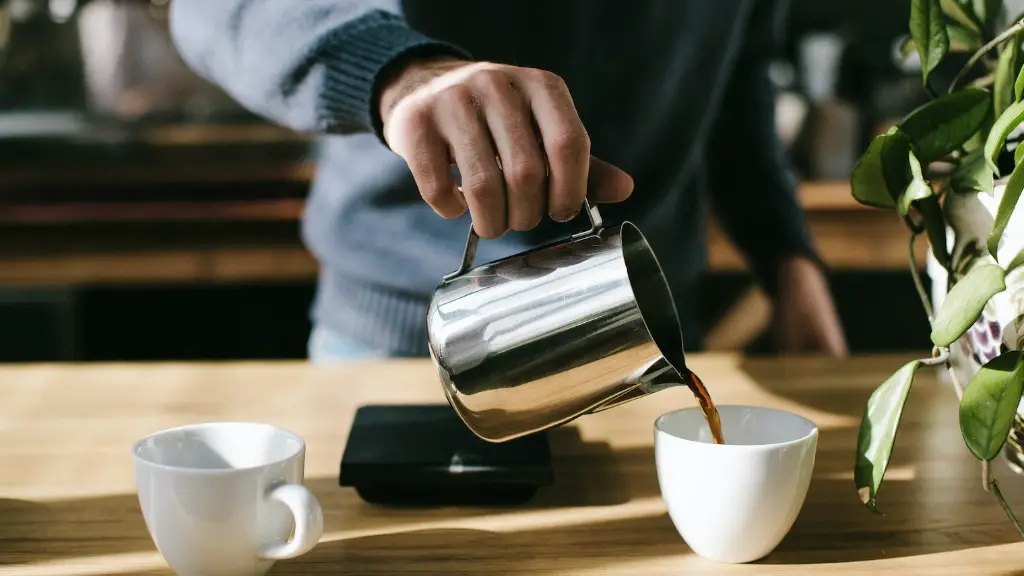Can Drinking Coffee Cause Pimples?
For those of us who cannot survive the day without having consumed their early morning cup of coffee, an important question arises: can drinking coffee cause pimples?
Coffee is made with roasted beans that are ground and used to make a drink that is popular all around the world, as evidenced by its standing as being the world’s most widely consumed beverage.
When it comes to the potential effects of consuming coffee, the answer to the question of whether or not it can cause pimples appears to be yes. Research has found that coffee can make a person more prone to develop breakouts, acne, and even cysts.
One study that looked into the consumption of coffee and its effects showed that participants who consumed more than one cup of coffee per day were more likely to have increased levels of inflammatory markers in their bodies. This is especially true for younger people and those with acne.
Antioxidants are commonly found in foods such as fruits and vegetables, however, coffee beans also contain antioxidant properties. Though these can reduce inflammation and can help protect the body from developing certain conditions, their presence in coffee may also result in increased sebum production.
Sebum is an oily substance that is produced in the skin and can increase chances of developing acne if not regulated. This is why it’s a common misconception that coffee can cause pimples, since it increases sebum production and can further clog pores when combined with dead skin cells, dirt and other particles.
Dermatologists suggest that people with already existing acne should limit their coffee consumption and opt for decaffeinated varieties, as the amount of caffeine present in the beverage can contribute towards one’s skin issues.
Besides its antioxidant properties, caffeine is a stimulant that can crease stress levels, releasing cortisol which can lead to the activation of the ‘fight or flight’ response, causing spots and inflammation.
Though drinking coffee has been linked to pimples, this does not necessarily mean that you need to stop drinking it entirely. Instead, it is advisable to drink it in moderation and to look into decaffeinated alternatives, as well as exercising better hygiene practices.
Additional Effects of Coffee
Apart from its potential effects on the skin, drinking coffee can also have other implications on one’s health. Specifically, when drunk in large amounts, it can create symptoms such as anxiety, insomnia, headaches and digestive problems.
Coffee also poses a risk for those at risk of heart disease or high blood pressure, as it can cause the heart rate to rise up and spike both one’s blood pressure and glucose levels. This is why doctors recommend that people with existing conditions should limit their coffee consumption, ensuring they stay healthy both in the short and long term.
In addition to its potential health implications, coffee can also be hard on the stomach and can leave users feeling bloated or experiencing severe acidity.
Coffee can also be habit forming, as it houses an addictive chemical called caffeine which can lead to physical and psychological addiction. Being addicted to caffeine can be dangerous for your mental and physical health, therefore it is best to limit your consumption of coffee in order to prevent this from happening.
Coffee can also be acidic, leading to GERD or Gastroesophageal Reflux Disease, and increased uric acid levels which can cause ailments such as gout and kidney stones.
The Right Amount of Coffee to Drink
In order to gain the most benefit from coffee, while minimizing its potential adverse effects, experts come forward with guidelines regarding the right amount of coffee to consume. Most suggest that a single cup per day is probably safe when not taken on an empty stomach, however, this amount can vary depending on individual needs, body weight, and tolerance.
The main concern when drinking coffee is drinking too much of it, as excessive quantities can be harmful, making it essential to understand the body’s own caffeine needs in order to make sure that the impact of coffee on the health is minimized.
It is also important to watch out for excessive sugar, cream, and other additives that can be added to coffee, as these can contribute to weight gain, high cholesterol, and other health issues.
By taking into consideration the above mentioned precautions, one can maintain a healthy relationship with coffee so that it does not become a risk to their own health.
Alternatives to Coffee
Besides coffee, there are many other alternatives which provide similar benefits while carrying fewer risks and adverse effects. These include golden milk, herbal teas and matcha tea.
Golden milk is made from mixing turmeric with milk and various other spices and is valued for its anti-inflammatory properties. It’s a popular choice for those that are looking for a healthier way to replace their coffee cravings.
Herbal teas such as chamomile, lemon balm and ginger, have been appreciated for centuries for their medicinal and calming effects. They also provide high amounts of vitamins, minerals and antioxidants with little to no caffeine.
Matcha tea has also become increasingly sought after, as it contains high levels of both caffeine and antioxidants while having very low levels of toxins and free radicals. This means that it can be consumed without worrying about potential effects on health.
Overall, despite coffee’s popularity and the potential pleasurable effects of drinking it, it is essential to consider the potential impact of consuming coffee both in the short and long term. By understanding one’s own individual needs and staying informed, it is possible to make a conscious decision regarding its consumption.
Good Hygiene Practices
Apart from being informed and being aware of the potential implications of drinking too much coffee, it is also important to maintain good hygiene practices to keep the skin healthy. These include washing the face twice a day, using oil-free moisturizers, avoiding touching the face with unclean hands and using non-comedogenic makeup and other beauty products.
It is also advised to keep an eye on what type of foods one consumes, focusing more on foods rich in omega fatty acids, antioxidants and other vitamins, like leafy vegetables, antioxidants, fatty fish and seeds.
Additionally, it is important to prioritize exercise and getting enough rest. Doing so will ensure that the body and skin gets the rest and rejuvenation it needs to stay healthy, protecting it from potential external factors.
Overall, there are many things we can do to keep our skin and body healthy and safe, and understanding the implications of drinking too much coffee is just one of them.
Coffee and its Link to Genes
Apart from the implications of its consumption, it is also important to take into account the genetic aspect of our skin. This is because certain individuals are more prone to develop skin issues due to their genetic makeup, irrespective of their environmental triggers.
When it comes to the consumption of coffee and its potential implications on the skin, certain people may be more prone to developing acne due to their genetics, regardless of how much coffee they consume. Therefore, it is important to consider our unique set of genes before making any decisions regarding our lifestyle and habits.
Another thing to keep in mind is to check with our doctors if we are unsure about anything. Our doctors are trained for such purposes, making it easier for us to stay safe, healthy and protected.
Managing Stress Effects
In the end, it is important to keep in mind that too much stress can be detrimental to both one’s physical and mental health. Stress can lead to factors such as hormonal imbalance and worsened psychological state, impacting our already existing conditions.
Stress can also negatively affect our focus and mood, damaging natural healing processes and increasing long term sickness. This is why managing stress is essential and seeking help is not a sign of weakness, rather it can be the thing that helps people regain control over their own lives.
Learning relaxation techniques and practices like yoga, deep breathing, mindfulness and other activities can be apportioned to help people get back in control and reduce their stress levels, restoring their focus and improving their physical and mental health.
In summary, it is important to be aware that coffee, like any other beverage, can have a potential effect on one’s health and skin. However, this does not mean that it should be avoided altogether. Instead, it is important to be conscious and sensible of our own individual needs and habits, making sure to stay informed and to seek help if needed.





